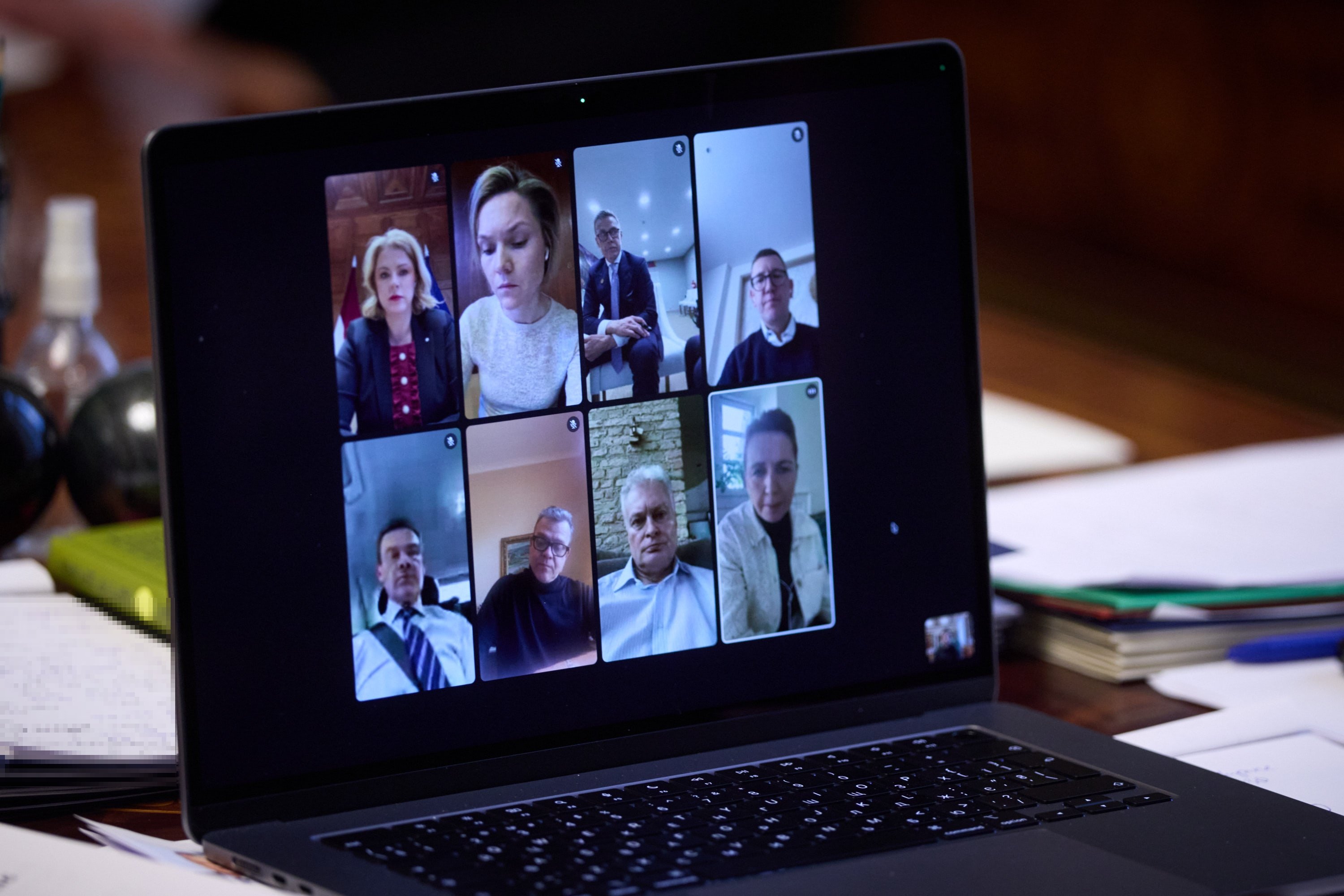Europe Pushes Back Against US-Backed Ukraine Peace Plan Over Border Concessions and Security Risks
European leaders have issued a unified but cautious response to the newly revealed 28-point United States peace proposal for Ukraine, voicing support for diplomatic efforts while warning that the current framework is deeply flawed and risks undermining both Ukrainian sovereignty and European security.
 |
| Image Source: Zelenskyy |
French President Emmanuel Macron welcomed Washington’s engagement but asserted that the proposal must be significantly strengthened.
“No border can be changed by force, and Ukraine must never be left vulnerable,” Macron said. European Commission President Ursula von der Leyen echoed this view, stating that while the draft contains elements essential to a future settlement, any agreement must uphold international law and cannot be accepted without consent from NATO and EU members.
Both leaders expressed strong concern over proposed limitations on Ukraine’s military strength, warning it could leave the country exposed to future aggression from Russia.
The response underscores the widening transatlantic gap over the path to peace. European leaders are signalling that any future framework must be built on terms that secure Ukraine’s long-term sovereignty and regional stability.
The European Council President António Costa has called a special meeting of all 27 EU leaders during the EU-AU summit in Luanda to further discuss the matter.
Ireland’s Micheál Martin, after attending a meeting of the Coalition of the Willing, described this as a “very serious moment in the war” and called for firmness and skill in dealing with the evolving situation.
Reports indicate that the US presented the 28-point plan to President Zelenskyy during a visit by US Army Secretary Daniel Driscoll in Kyiv on November 20. The following day, Reuters reported that the US threatened to halt arms and intelligence support unless Ukraine signs the agreement by November 27.
The plan’s provisions include territorial concessions, the creation of a demilitarised buffer zone, the lifting of sanctions on Russia, and legal guarantees of Russian sovereignty over Crimea, Donetsk and Luhansk. It also proposes banning foreign troops from Ukrainian territory, designating Russian as a state language, and granting full amnesty for all wartime actions.
Ukrainian President Volodymyr Zelenskyy has so far resisted accepting the plan, stating that Ukraine wants peace, but not one that compromises its dignity or independence.
He has been coordinating closely with leaders from the UK, France, Germany, and Poland, and confirmed that Ukrainian, US, and E3 (France, Germany, UK) representatives will meet in Switzerland to continue talks.
Zelenskyy said Ukraine's negotiating team is fully aware of what must be done to prevent further Russian aggression, reiterating the importance of informed and unified positions among Kyiv’s allies.
Despite public denials, German intelligence agencies reportedly had access to the draft plan as early as late October. After the plan was leaked, Chancellor Friedrich Merz reportedly held emergency discussions with European leaders to coordinate a diplomatic counteroffensive.
The Berlin-based Bild newspaper reported growing unease in the German government over the scale of concessions demanded of Ukraine.
Foreign Minister Johann Wadephul and the head of the Chancellor's Office Thorsten Frei had previously claimed they were unaware of the initiative.
For European leaders, the fundamental concern is that endorsing such a framework would amount to legitimising territorial conquest.
The declaration that borders must not be redrawn by force has been consistently reaffirmed since the start of Russia’s full-scale invasion in 2022. Several leaders, including von der Leyen and Canada’s Mark Carney, stressed that any process involving NATO or the EU cannot proceed without the express approval of all member states.
Dutch Prime Minister Dick Schoof, after a meeting with counterparts from Japan, Australia, and Canada, described the US proposal as a work-in-progress and stressed the importance of continued support to Ukraine.
Russian President Vladimir Putin, meanwhile, said the draft could potentially serve as a foundation for negotiations, though he noted it had not yet been formally discussed with Moscow. He suggested that the lack of dialogue was likely due to Ukraine’s refusal to accept the terms.
In contrast, US Vice President JD Vance dismissed the idea that increased arms and sanctions could bring about a Ukrainian victory, insisting that real peace requires “smart people living in the real world,” not “fantasy” diplomacy.
He acknowledged that some criticism of the framework misrepresents on-ground realities but reiterated that the solution must be mutually acceptable to both Kyiv and Moscow.
